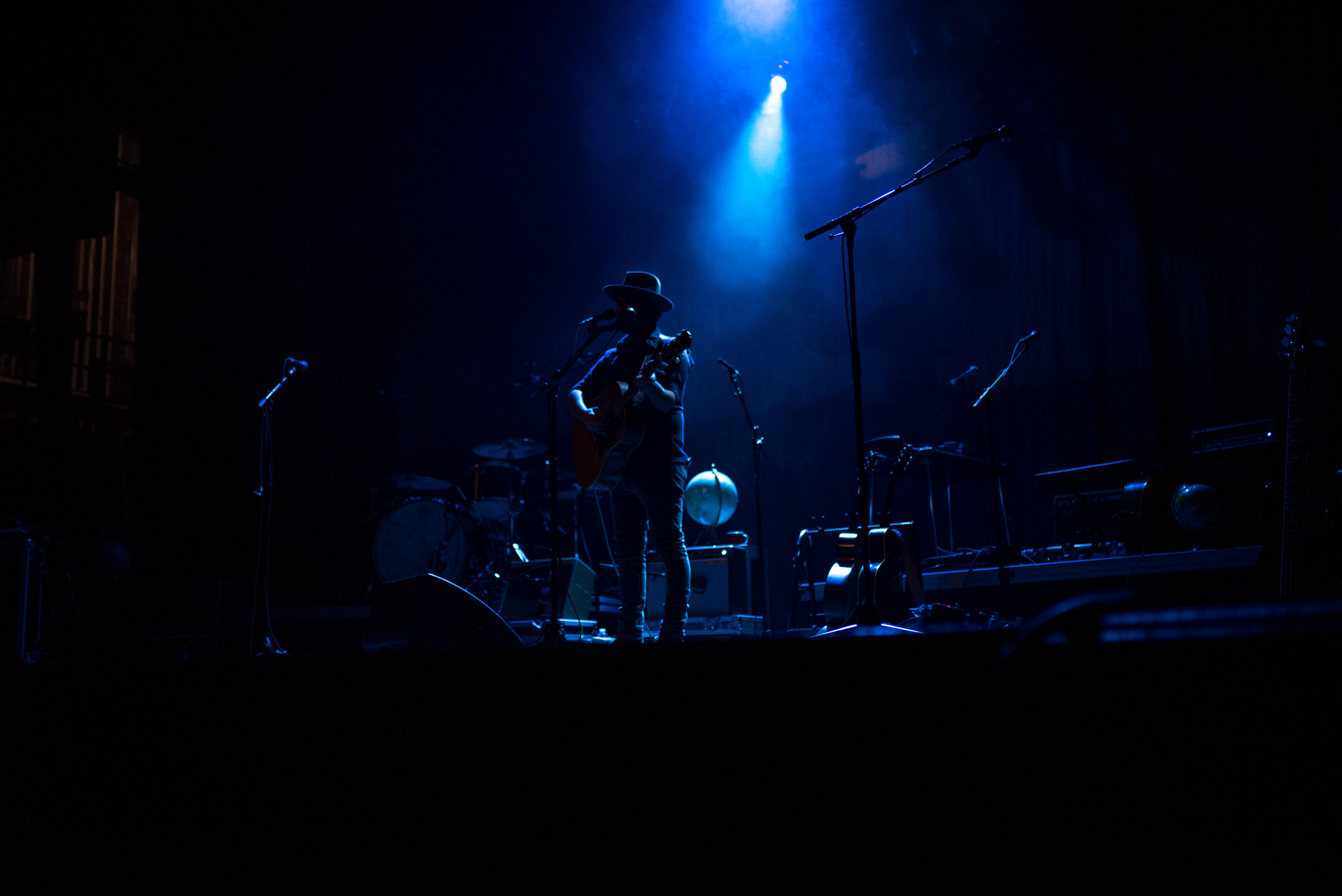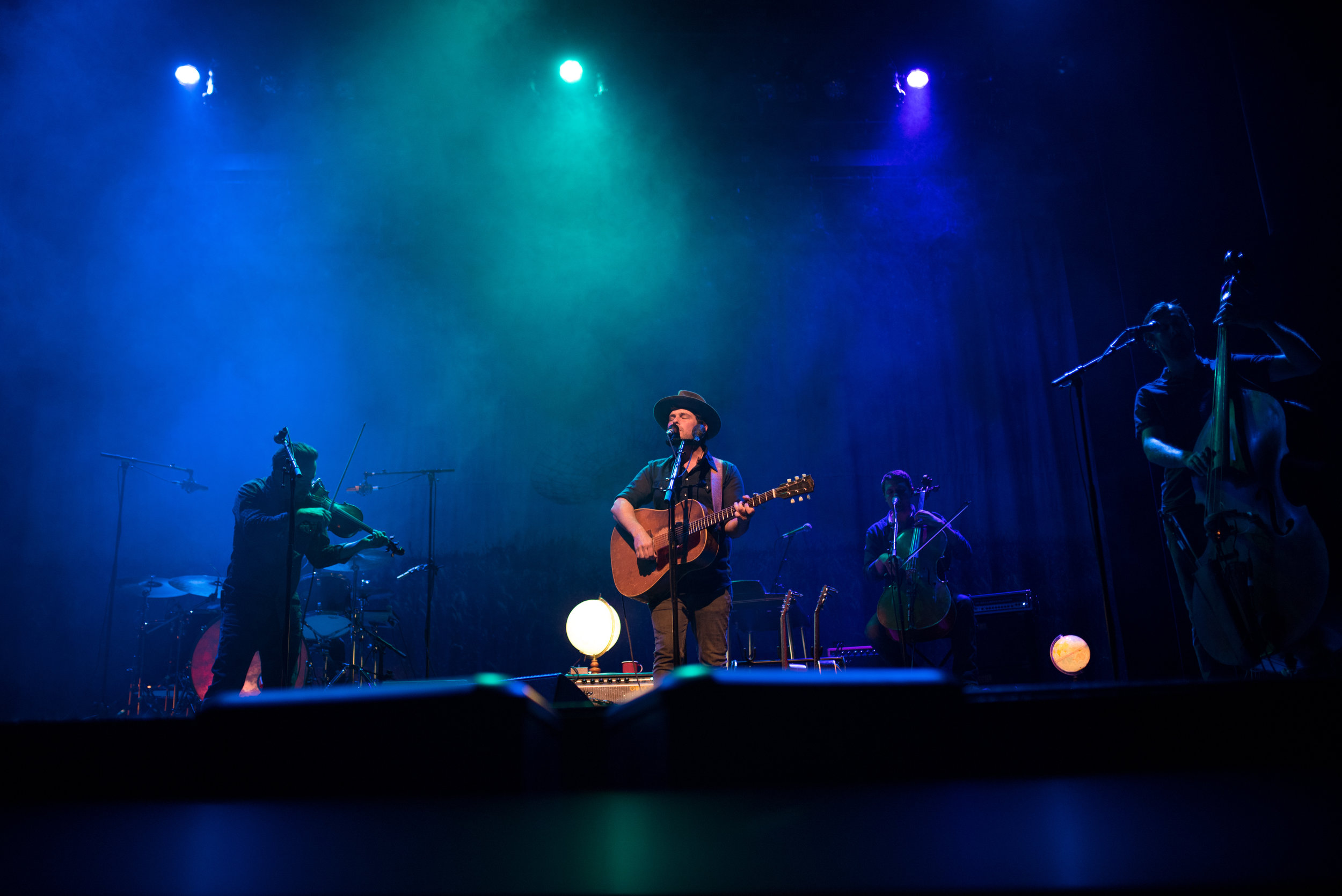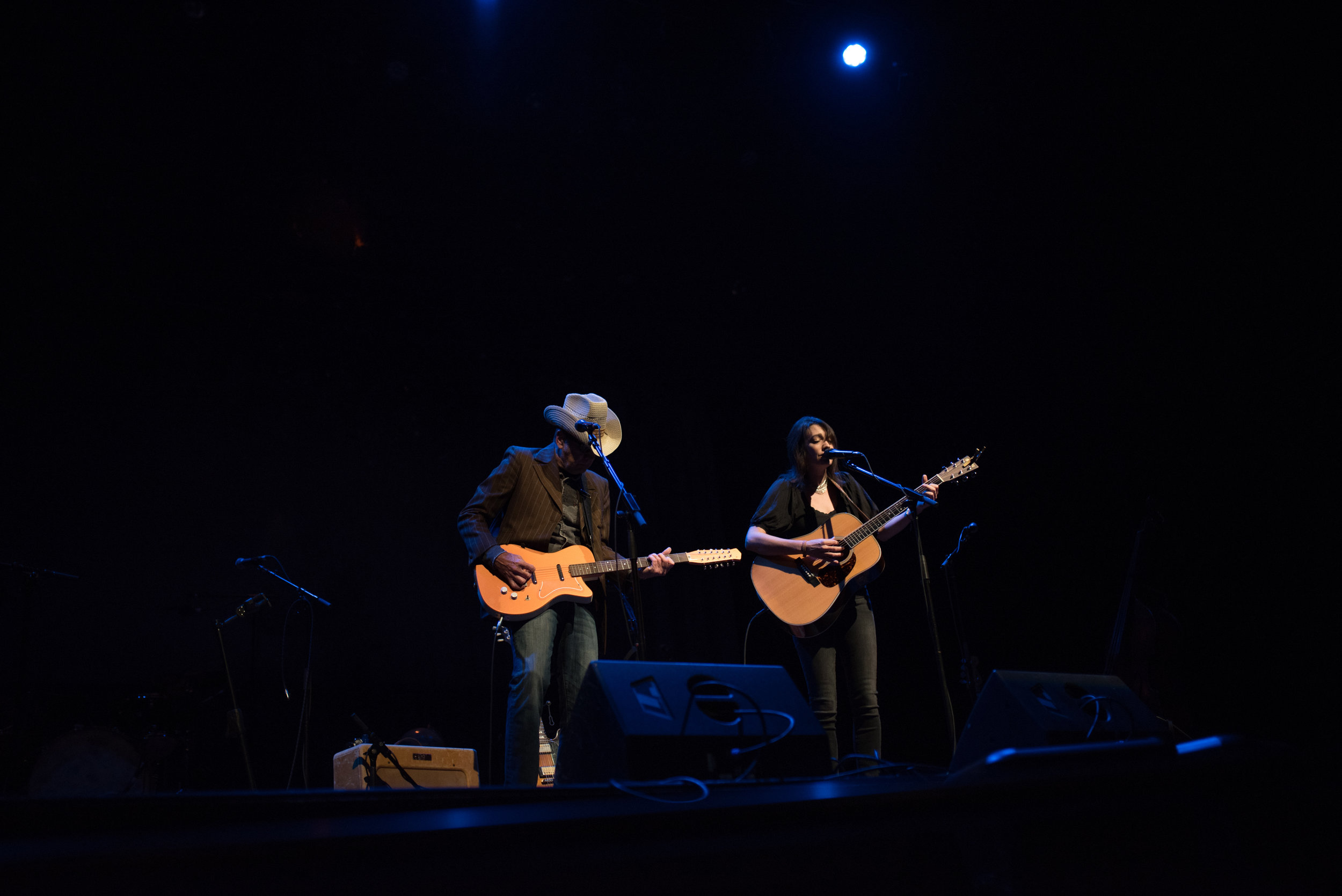Gregory Alan Isakov: Sad Songs About Space
By Austin Turpen
Photos by Jayme Bigger
Saturday night at the Englert Theater, Gregory Alan Isakov walked out alone onto a stage crowded with a small orchestra’s-worth of acoustic strings, a stage flooded with dim shades of blue, green, and purple. Barely visible was a large, outdated telescope dish depicted on the backdrop. The dish pointed up, looking into a star-filled sky, perhaps out of curiosity, perhaps out of some sort of longing for a kind of communication it is no longer capable of. Hard to tell. As Gregory casually fingerpicked his guitar, checking the tuning, the room filled with dark, ethereal ambient delays.
Someone sitting near the front row, right of center stage, spoke for the whole room when they said, “We love you Gregory!”
It was the truth.
Gregory looked down at us through the brim of his hat.
"I love you,” he said, his voice hushed and comically seductive. “I love you a lot."
He opened with his song “She always Takes it Black” from his 2013 album, The Weather Man. Everyone was completely silent. The audience was lulled yet rapt with Isakov’s understated, quietly jaw-dropping lyrics. He nodded back at us, back at the fan who had earlier professed their love, as he sang:
Oh, I'm yearning for the pack
But I'd never say "I love you, " dear
Just to hear you say it back.
I know I saw him wink, though his face was almost completely obscured by shadows and haze.
The rest of the band emerged from backstage mid-song. They picked up their instruments and joined in. Plucked, upright bass notes resonated through our chests. The woman sitting next to me put both hands over her mouth. Oh, my God, she whispered. The drama of the strings, the powerful grunt of the electric guitar, punctuated by the kicks and snares of the percussionist—it all coalesced to create a deep, undeniable sense of fullness.
The group had chemistry. You wouldn’t need to know anything about music to know that.
The band members all exchanged a look then transitioned seamlessly into the next song, Isakov’s most popular, “Big Black Car.” The crowd erupted. Three globes—placed on various amps and speakers across the stage—illuminated from their cores with warm tones of orange and yellow. The globe in the middle, sitting on Gregory’s amp, was turned such that Africa faced out toward the crowd. When he was a child, in the midst of Apartheid, his family emigrated from South Africa and found roots in Pennsylvania.
Isakov, a timid, admittedly anxious person, is a natural storyteller. He kept the audience entertained all night with anecdotes about his writing process, such as the time he cut up a few “trashy romance novels” and used the pieces to create a sort of “refrigerator magnet poem.” In his home studio, which is actually just an old, repurposed barn, there is a wall full of taped-up paper scrawled with incomplete lyrics and lists of words he had forbidden himself from using again, “like moon or stars.” The band decided to call the wall “suicide watch,” because “those songs had better finish themselves soon.”
From his most recent album, Evening Machines, the song “Berth” tells a story of Isakov’s complicated relationship with the past. In it you will find striking imagery of an immigrant’s journey. The title of the song itself refers to the space under a boat in which passengers sleep. In one line, he references the moment Lot’s wife is turned into a pillar of salt for looking back as they left Sodom: “turned to salt for wondering….” The song refrains, “quit all that looking back / I quit all that.”
In an interview with the Englert, Gregory reveals that it wasn’t clear “Berth” was about immigration until much later. Like any great story teller, Gregory knows that concrete meaning is rare, elusive, and sometimes not all that useful in the creative process. Toward the end of the show, he told us about a gig he played a couple years back in Paris. The venue was small. Microscopic. To set up on stage, they had to cram with their instruments into an elevator that was about shoulder-width. When the elevator doors opened, they saw an old man sitting on the stage. The man asked what kind of music they played and what it was about.
“I like to fuck with people a little bit,” Gregory said shyly. “Tell ‘em we’ve come to play a bit of Jazz for them, a samba mix. How do you answer a question like that? I never know. I think I told him, that night in Paris, that we write sad songs about space.”






